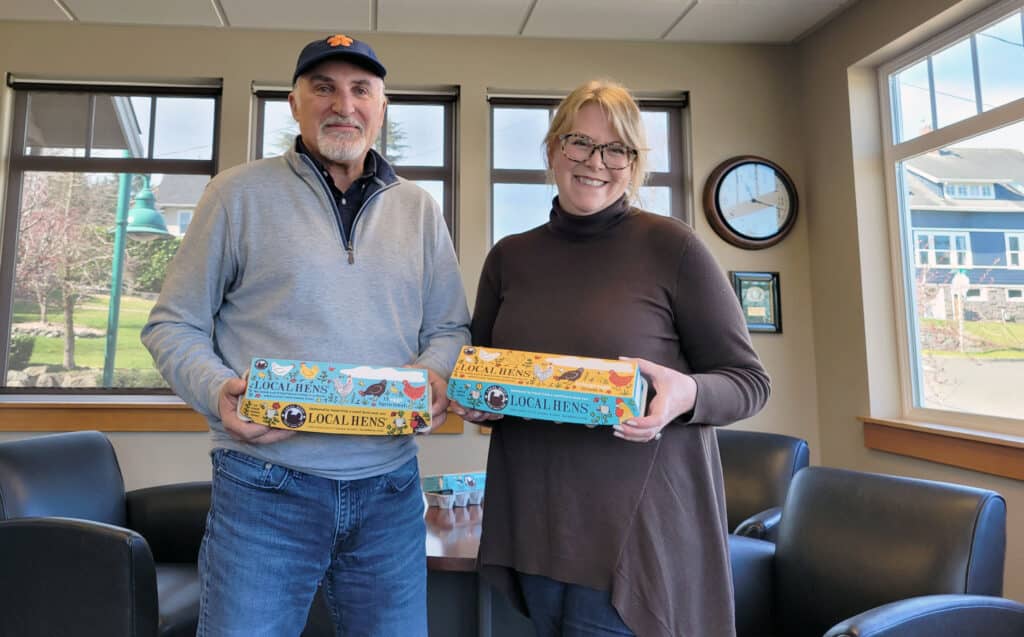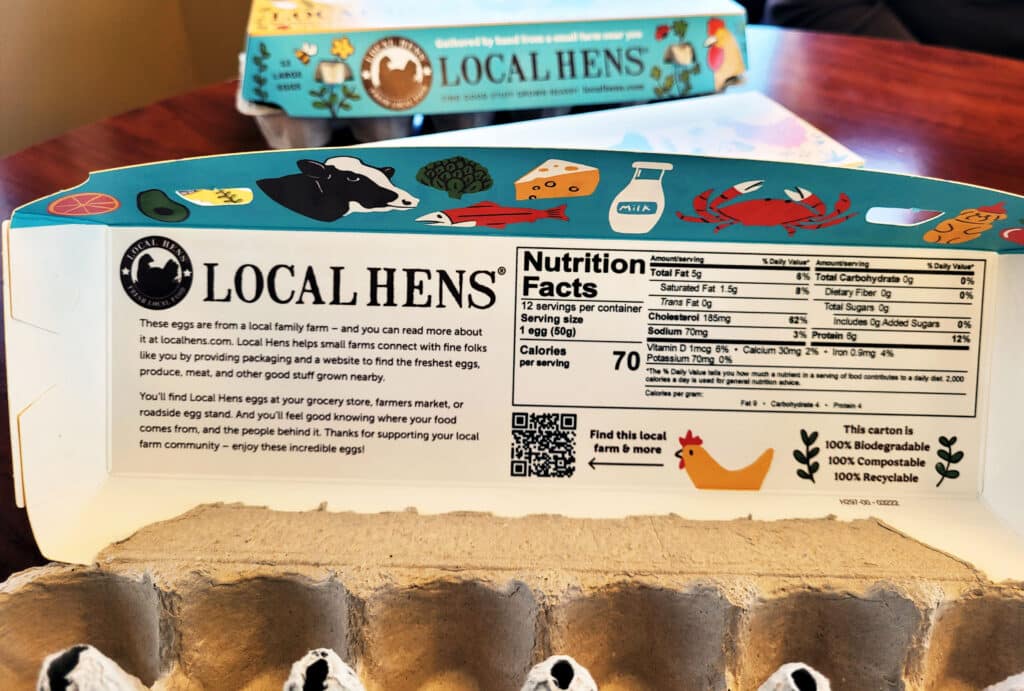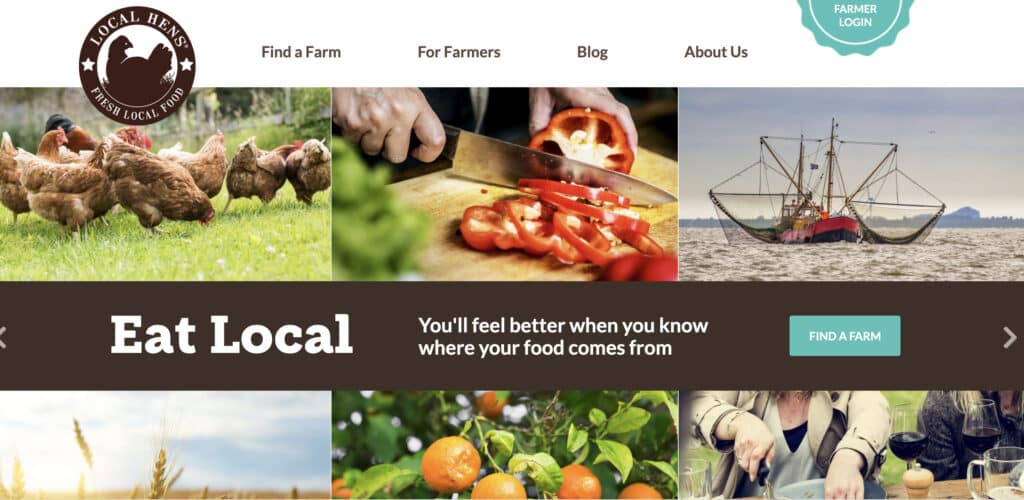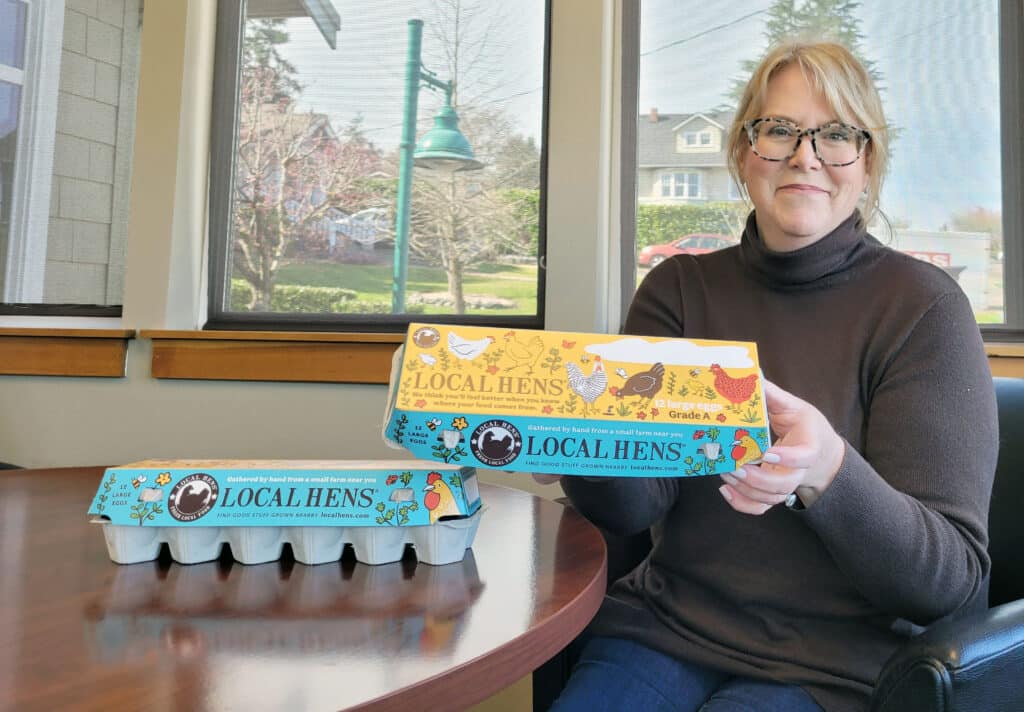Business Community
Gig Harbor businesses help small farms connect with customers
Small farms are becoming a bigger enterprise.
That’s especially true in Washington state, where 89 percent of farms are considered “small farms,” selling less than $250,000 annually, according to the Washington State Department of Agriculture.
Yet for small and backyard farmers, connecting with consumers can be a challenge. Especially when their competitors are often big agribusinesses with access to massive budgets for packaging and marketing.
That’s where two Gig Harbor-based businesses come in.
The Egg Carton Store and Local Hens, both owned by local residents Bill and Sheri Swanson and based out of an office building in downtown Gig Harbor, exist to help small and backyard farmers get their products in front of customers.

Bill and Sheri Swanson with egg cartons sold through their Gig Harbor-based business, The Egg Carton Store.
Local Hens is a website that helps consumers looking for locally produced agricultural goods connect with farms in their area. A colleague calls it “the Google of farms.” It is used by farms and customers all over North America and beyond.
The Egg Carton Store, as you might expect, sells egg cartons (among other things). The twist is that egg cartons can be hard for small and backyard farmers to obtain.
Carton connections
Here’s why: Egg carton manufacturers usually deal with those huge, mutibillion dollar businesses. They typically sell by the truckload, which is 200,000 cartons. That’s a lot for a backyard farm with a couple dozen hens.
“They’re just not set up for the small family farm,” Bill Swanson said.
So The Egg Carton Store (or TECS) buys from the big manufacturers and resells to the small farmer, adding custom branding materials for those who want it.
“We could buy in bulk, and sell to a lot of people, a lot of little farms to make it work,” said Bill Swanson, who worked for 27 years in the egg packaging industry before starting the new venture. Before that, he worked in the grocery and consumer foods industries.
A new product, launched March 11, combines digital connectivity with colorful graphics designed to stand out on shelves.
The new carton includes a QR code that links directly to the farm’s online profile, helping small farms compete more directly against larger agribusinesses.

New cartons available through The Egg Carton Store include a QR code, allowing customers to connect directly with farms in their local area.
“The colorful design will be immediately recognizable as a ‘local’ option on a national level,” Bill Swanson said in an announcement of the new cartons. “This carton is a designed to be a highly competitive, yet affordable, packaging option for farmers to grow and expand their businesses. Consumers will be able to keep dollars in their local community and find healthy, truly local eggs.”
‘Talking to Americana’
The Swansons started the business 12 years ago, and it was a sideline for a while. Bill continued his previous work in the egg packaging industry, while Sheri worked as a teacher. It soon grew to a full-time gig, selling millions of egg cartons annually to thousands of small farms.
“You’re talking to Americana. Some of the people can be really hard to understand” due to regional accents, Bill Swanson said. “You’re talking to grandpa and grandma, you’re talking to someone who has a side business, you’re talking to a 10-year-old-kid. It’s actually pretty fun.”
Through those conversations, the Swansons heard from small farmers who were having a hard time reaching the many consumers who want locally sourced food.
Those consumers they didn’t always know how to find local farms. That’s where Local Hens stepped in.

The Local Hens website, which helps connect small farms with consumers in their area.
Helping farms tell their stories
On Local Hens, farms can create profiles, tell their stories and link to their website and social media. They can list where they sell their products, whether that’s at the farm, a farmers market, a restaurant or a grocery.
Consumers can type in their ZIP code and find where to buy locally raised products. “It’s kind of a farm directory,” Sheri Swanson said.
Janet Bailey, owner of Firewater Farm on Ray Nash Drive in Gig Harbor, has had a profile on Local Hens for years. She asks customers how they heard about her business, and about 30 percent learn about Firewater through Local Hens.
Bill Swanson calls Local Hens a “national brand for small farms to use.”
It’s effective, as illustrated by a recent anecdote involving a Local Hens user in Michigan.
The Local Hens website was down for a short period for an upgrade. The user in Michigan called the Swansons in a panic.
“He had customers contacting him and asking if he was still in business,” Bill Swanson said, “because customers couldn’t find him (for a short period of time) on Local Hens.”

Sheri Swanson displays one of the colorful new cartons for sale through the Gig Harbor-based The Egg Carton Store.
